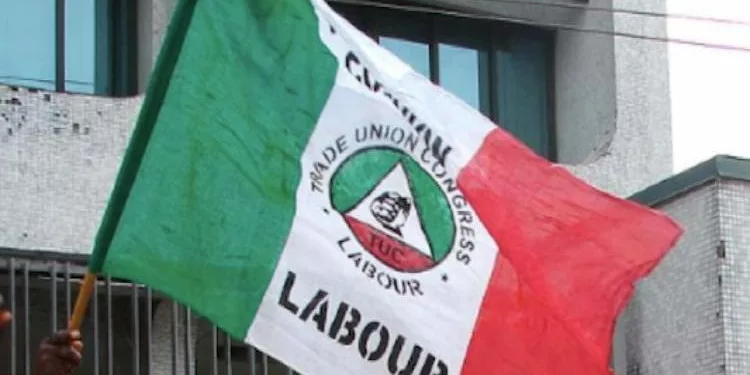The International Workers Day reopened the long discourse about the status and welfare of the Nigerian worker, which, in our country, largely begins and ends in debate over the minimum wage.
There is no gainsaying that the minimum wage is long due for a review. But what’s worse is that the current socio-economic realities in Nigeria make the N30,000 minimum wage look very ridiculous, if not grossly pitiful. What’s worrying is the delay in arriving at an agreement while the living situation in the country worsens.
At the federal level, discussions are ongoing to review it, as stated by the Minister of State for Labour, Nkeiruka Onyejeocha, last week while addressing Nigerian workers at the May Day celebration in Abuja.
She said the Tripartite Committee On National Minimum Wage is yet to conclude its negotiations, adding that workers will not lose anything as the new minimum wage will take effect from May 1, 2024.
Meanwhile, last December, the Minister of Information and National Orientation, Idris Mohammed, said a new minimum wage regime would come into effect on April 1, 2024.
He said the current N30,000 minimum wage would expire at the end of March 2024.
The minister stated this while responding to questions on the 2024–2026 Fiscal Framework budget, which indicated that the government would spend N24.66tn on salaries in 2024, 2025, and 2026.
The federal government had agreed to pay N35,000 to each of its workers to cushion the effect of fuel subsidy removal by President Bola Tinubu on May 29, 2023.
The organized labor insisted that the N35,000 wage award was a temporary measure, adding that the minimum wage should be reviewed in 2024.
The federal government’s team and the Joint National Public Service Negotiating Council on October 18, 2019, agreed on the implementation of the N30,000 minimum wage after months of negotiations.
However, discussions have since deadlocked over labor’s proposal of N615,000 as the minimum wage. The union, pressing its case, gave a breakdown of how it came about this figure, arguing that as much as it was stringently conservative, it wouldn’t let its members collect an impoverishing wage.
The federal government insists it cannot pay what labor is asking. Reports, however, indicate that the government and the private sector’s counteroffer of between N60,000 and N70,000, was what led to the stalemate in negotiations.
The state governors, last week, said they would review the report of the tripartite committee when submitted and that each state would reach a decision on what it can pay.
However, in some states, the minimum wage was reviewed, albeit variedly. While the Lagos State government said it had doubled the minimum wage since January by an additional N35,000, the Edo State government declared N70,000 as the minimum wage in the state.
The Cross Rivers State government also announced a N40,000 minimum wage while in Ebonyi State, an additional N10,000 was added to their pay.
As a newspaper, we consider this gesture commendable even though it is not a favor by any of the governors. If anything, we believe that, in light of current realities, the workers should get more at a time when all safety nets seem to have been removed.
While they grapple with fuel subsidy removal, the electricity tariff hike came. For a long time, workers have had to pay for their security, which is supposed to be the major reason for a government. With public housing gone, private estates now employ security agents. What’s worse, the cost of food has been on a steady rise for years now.
Yet, political officeholders who have access to the Commonwealth have, without inhibitions, amassed public wealth to themselves.
Of course, the ripple effect has been that some public workers have since learned to adapt by pilfering from the public till to make ends meet. Hence the scramble for juicy public and political offices continues to spike. Still, this ugly trend is highly condemnable as it is not justifiable in any way and by any stretch of the imagination.
As a paper, however, we urge the quick resolution of the trade impasse over the minimum wage at the federal level.
We also advocate that other states should follow in the steps of their counterparts while they await the outcome of the labor and federal government negotiations.
We urge the political officeholders to make the needed sacrifices to free up funds for the workers.
No society can truthfully call itself civilized when its workers must take to the streets year after year, pleading for crumbs. President Bola Tinubu has a moral obligation to finally resolve this long-simmering crisis. Every day of further inaction is another assault on the rights and fundamental dignities owed to the working people who are the backbone of this nation.



